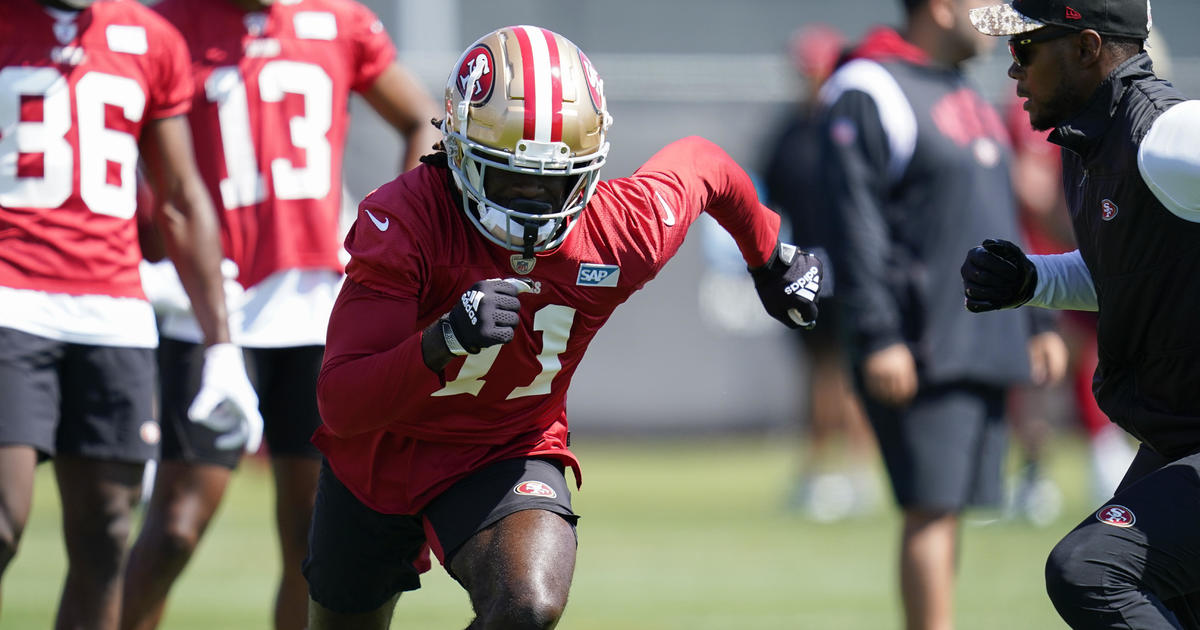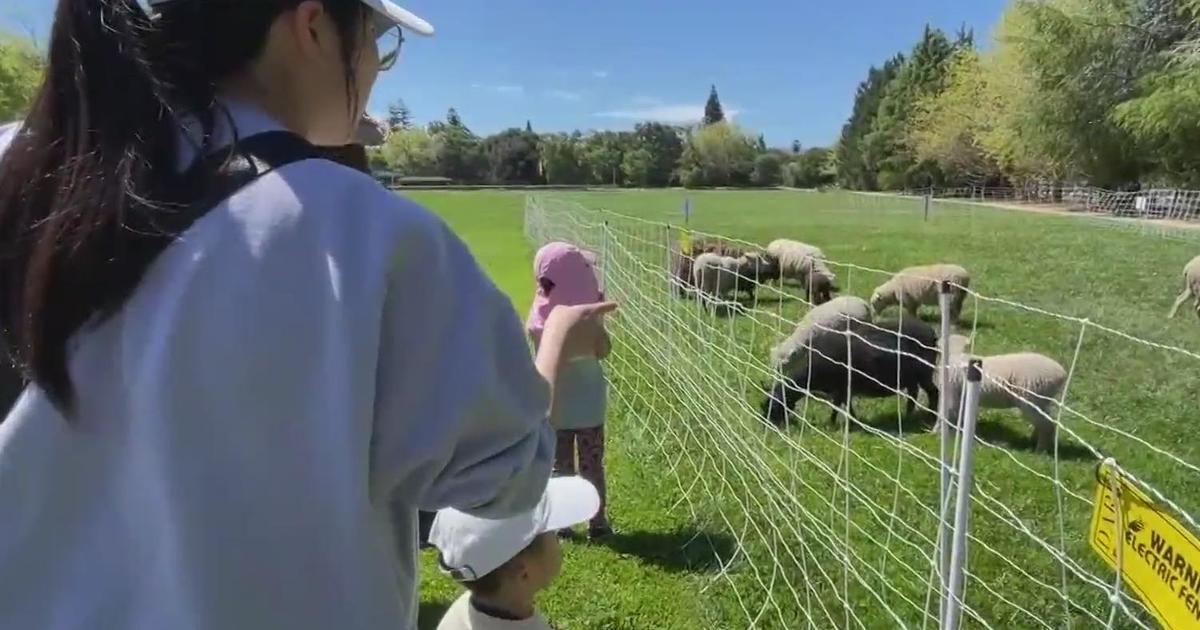Beware Of Produce Cheats At Farmers' Markets -- They Don't Grow What They Sell
SAN FRANCISCO (KPIX 5) -- In the San Francisco Bay Area, there are more than 200 certified Farmers' Markets.
But how do you know you're getting freshly picked produce from a local farm, and not from Central America?
KPIX 5's Elizabeth Cook went in search of the produce cheats.
At the Clement Street Farmers Market in San Francisco, software developer Joe Barefoot and his daughter Athena were buying organically grown, sustainably farmed berries.
He trusts that the farmers actually grow what they sell.
"Because if they don't," said Joe, "then how do you know that they're perpetuating the kind of practices that you're shopping for in the first place?"
But in California, and the Bay Area, there's a problem.
Some farmers are cheating.
They're selling produce that's been grown by someone else, and passing it off as their own. KPIX 5 News asked some local County Agricultural Commissioners, and they told us, while in their experience, most small, local farmers are honest, produce cheats are around and operating.
"To have organic carrots - - and they look beautiful and big and straight of Safeway," Santa Clara County Agricultural Commissioner Joe Deviney explained.
"If you buy an apple, and it says product of "Chile" on it," said Agricultural Commissioner Fred Crowder from San Mateo County.
"It occurs everywhere I believe. It's really difficult to find it at times." stated Chad Godoy, the Agricultural Commissioner for Contra Costa County.
We also turned to the managers of some highly regarded Certified Farmers' Markets. They too have been hit by a few bad apples.
"Yes. It happened to me," said Erin Tormey. Tormey is the Founder and Manager of the Coastside Farmers' Markets, "It's happened here at this market. It didn't last for very long because I'm a farmer myself."
We also spoke to some retailers and wholesalers. They too told us the produce cheats are in our midst.
"They're cheating and what they're doing is wrong and dishonest," explained Dan Avakian.
Dan Avakian has worked in produce for nearly 40 years. Almost half the produce he sells at his produce stand in Alameda comes from small, local, organic family farms. He explained how produce cheaters go to wholesale markets or to packing houses and buy produce on the cheap.
They then turn around and sell it, at a cheaper price than the honest farmers at the certified markets. Avakian said not only do cheaters undermine his business; they really hurt the small farmers and growers.
"The growers that work their rears off are being cheated because they work hard to produce what they have." said Avakian, "You - the consumer - you are definitely being deceived with your hard earned dollars,"
During a recent visit to the wholesale market, Avakian pulled out his iPhone - and recorded some video. He narrated how he spied some vendors who bought a whole bunch of vegetables, that they did not grow and how they removed produce from the growers' boxes and put it in red tubs.
Avakian said he has seen others do this and said they then bring bins back to the Farmers' Market as if they grew it themselves.
County Agricultural Departments inspect each Farmers' Market at least twice a year. Some, like San Mateo County, inspect them more often: once a quarter. The inspectors look at what the vendor sells, and makes sure each item is listed on a state-issued certificate that the vendor must keep on display at the stall.
"And if they're selling as organic," said Santa Clara County Agricultural Inspector Matt Beauregard, "This is a way that we check to make sure that they are registered or certified as organic."
Beauregard is on the lookout for any produce that looks too good to be true,
In a past case, an investigation focused on carrots. They were long, lean, and perfectly sized, and to a trained eye, that sparked scrutiny.
A visit to the farm revealed the real crop. Those carrots were short, fat and irregularly shaped.
The farmer got fined.
But to do an investigation is costly: sometimes the farms that need an onsite visit are located in the Central Valley.
"It's expensive!" exclaimed Crowder. He said more than half of his department's costs come from investigation.
All three agricultural commissioners agreed: they can never get reimbursed for any investigation.
The Certified Farmers Market Program is run by the California Department of Food and Agriculture.
A new state law signed by California Governor Jerry Brown changes that. The law - known as AB 1871 - went into effect January 1, 2015. In part, it increases the fees markets must pay to the California Department of Food and Agriculture. That money goes into a fund that will not only reimburse county Agriculture Departments for their local investigation; it will also hire new state inspectors. Some funding will also go to maintain a data base of growers and markets.
The law also requires each producer must post a conspicuous sign that contains the farm or ranch name, the county of production, and a statement that they only sell what they grow.
"It will allow us to remove the bad players," said Godoy.
Avakian is glad there's a new law to root out the cheats, but he is concerned. The increase in fees is expected to be over $1 million annually, and he wants to see the money fund market investigations as promised. "Governor Brown," declared Avakian to KPIX 5, "You signed the law - you enforce it!"
Tormey is not wild about all the provisions contained in the law, but on the whole, she's pleased. She likes that the new law states how the market will be divided into a farming section and a non-farming section. She said it eliminates the part of the market that allowed for the resale of agricultural products
Back on Clement Street, Joe and Athena are heading home but not before they found out that this market goes one step further. It's run by the Agricultural Institute of Marin or AIM. This group actually goes out and audits every farm and grower that sells in the market. It's an additional step to ensure what the farmers are selling are what they grow. Each stall that's undergone an audit has a green sign that reads 'AIM" with a big "check mark" next to it.
"We want to create transparency through our markets, not only for our consumers but for our farmers who are actually growing what they're selling," explained Clement street Farmers' Market Manager Dana Gilliland.
"That does make a big difference." said Joe.
Bottom line for consumers: everyone told us that if you love shopping at Farmers' Markets, ask questions and get to know the growers and farmers who are selling there. Ask questions. Visit their farms. And if you see any bananas, that's a dead give way. They are packed with potassium, but they are not grown in California.



